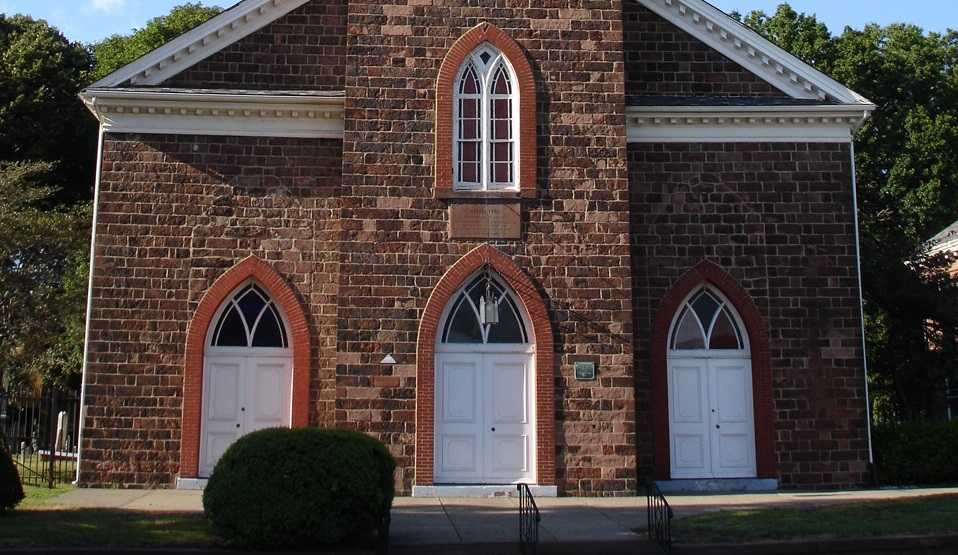
TRENTON, N.J. — The Supreme Court of New Jersey has ruled that a county’s financial grants to churches under its historic preservation program violate the “Religious Aid Clause” of the New Jersey Constitution because the funds are used for religious purposes and not solely historical aims.
“This case does not involve the expenditure of taxpayer money for non-religious uses,” wrote Chief Justice Stuart Rabner on behalf of the unanimous panel. “The appeal instead relates to grants that sustain the continued use of active houses of worship for religious services and finance repairs to religious imagery. In our judgment, those grants constitute an impermissible religious use of public funds.”
The Wisconsin-based Freedom From Religion Foundation (FFRF) and FFRF member David Steketee had filed suit against Morris County in 2015 to challenge the allotment of funds to churches in the county through the Historic Preservation Trust Fund. The organization specifically challenged the $1.04 million granted to St. Peter’s Episcopal Church and the Presbyterian Church in Morristown.
St. Peter’s had stated in its application that the funds would be used to “ensure continued safe public access to the church for worship, periods of solitude and meditation during the week, and several concerts throughout the year, as well as the treasures the church and tower contain.”
The Presbyterian Church had similarly outlined that grant money would help “historically preserve the building allowing its continued use by our congregation for worship services as well as by the community and many other outside organizations that use it on a regular basis.”
Last year, Superior Court Judge Margaret Goodzeit sided with the county, stating that the allotments were permissible because they were granted to various historic entities, not just religious ones.
“Morris County desires to sustain historic landmarks, not just historic churches,” she wrote. “Just because the religious groups have put Morris County on notice that the intend to use their churches for worship does not mean that Morris County is somehow inextricably entangled with religion.”
“Excluding historical churches from receipt of reimbursements available to all historical buildings would be tantamount to impermissibly withholding general benefits to certain citizens on that basis of their religion and would be inconsistent with the spirit of our state and federal Constitutions,” Goodziet concluded.
Goodzeit considered the constitutionality of the practice in light of Article I, Paragraph 3 of the New Jersey Constitution, which reads, “No person shall be deprived of the inestimable privilege of worshipping Almighty God in a manner agreeable to the dictates of his own conscience; nor under any pretense whatever be compelled to attend any place of worship contrary to his faith and judgment; nor shall any person be obliged to pay tithes, taxes, or other rates for building or repairing any church or churches, place or places of worship, or for the maintenance of any minister or ministry, contrary to what he believes to be right or has deliberately and voluntarily engaged to perform.”
She found that the statute was not to be read in a literal sense or in a vacuum, but to be taken in light of pertinent case law and “in conjunction with the State’s longstanding tradition of neutrality in Church-State relations.” Goodzeit deduced that the county was exercising neutrality in that it wasn’t granting funds exclusively to religious entities, but a variety of historic locations that applied for the program.
However, the New Jersey Supreme Court disagreed, stating that the churches’ notation that the funds would serve to keep the buildings usable for worship violates the cited constitutional provision known as the Religious Aid Clause.
“[F]or more than 240 years, the Religious Aid Clause has banned the use of public funds to build or repair any place of worship. Here, the County awarded $4.6 million to twelve churches to repair active houses of worship—from roofs to bell towers, from stained glass windows to ventilation systems. The use of public funds to pay for those repairs violated the plain language of the Religious Aid Clause,” Rabner wrote on Wednesday on behalf of the seven-judge panel.
He said that there are no exceptions to the rule, including for historic preservation of buildings.
FFRF cheered the decision, calling it a “win” for taxpayers.
“Governments in New Jersey cannot force Muslims to bankroll temples and yeshivas, compel Jews to subsidize Christian churches and Catholic schools, force Christians to fund mosques and madrassas or nonbelievers to support any religion. It’s a win for all,” said attorney Andrew Seidel in a statement.
However, others expressed concern that some historic churches—especially those whose congregations are small—may not be able to raise enough money privately to take care of upkeep, and historic sites may thus be lost.
“This [court] decision is unfortunate because we look at the churches, especially in Rutherford, as examples of historic preservation. Are you going to allow these buildings to fall down, or are you going to help them?” Rod Leith, historian and vice chairman of the Rutherford Historic Preservation Committee, told NorthJersey.com
“Historic preservation grants are a tool to protect historic resources. Regardless of personal belief systems, religious institutions are part of the built environment and are part of our community’s narrative,” Elaine Gold of the Bergen County Historic Trust Fund also told the outlet. “Historic preservationists value them as we value other community buildings because they tell the whole story of a place. Preservation grants are a method to preserve history and historic architecture, not promote religious doctrine.”
Become a Christian News Network Supporter...


